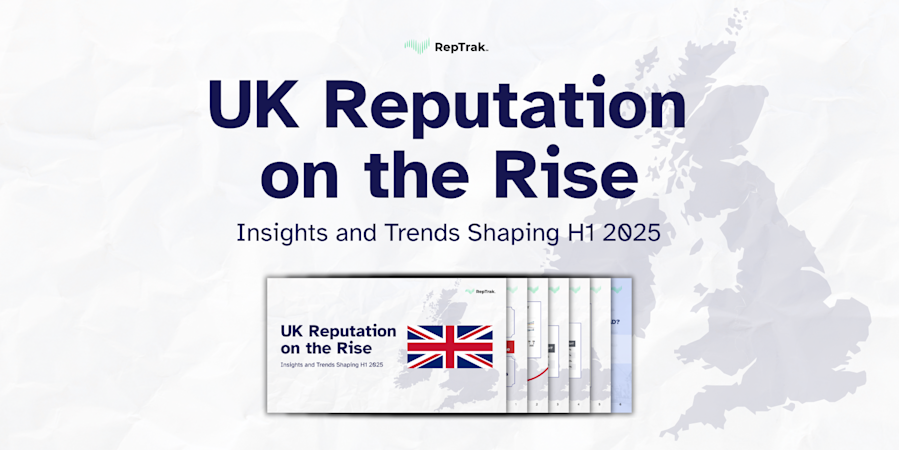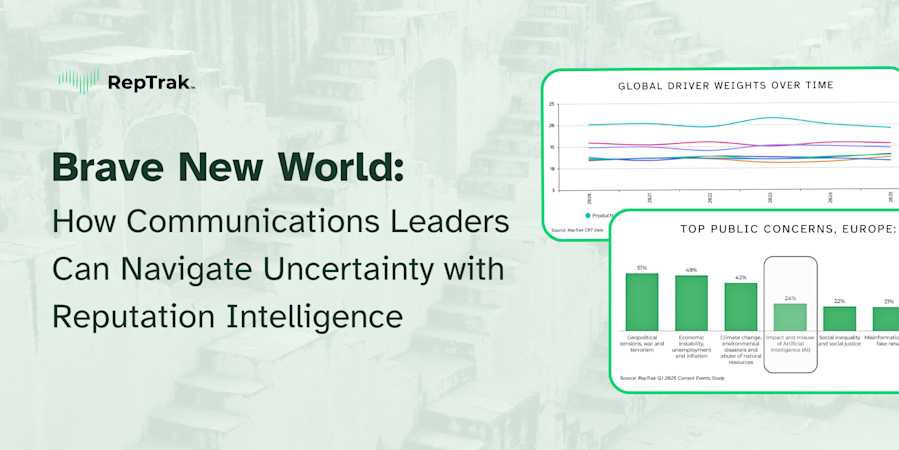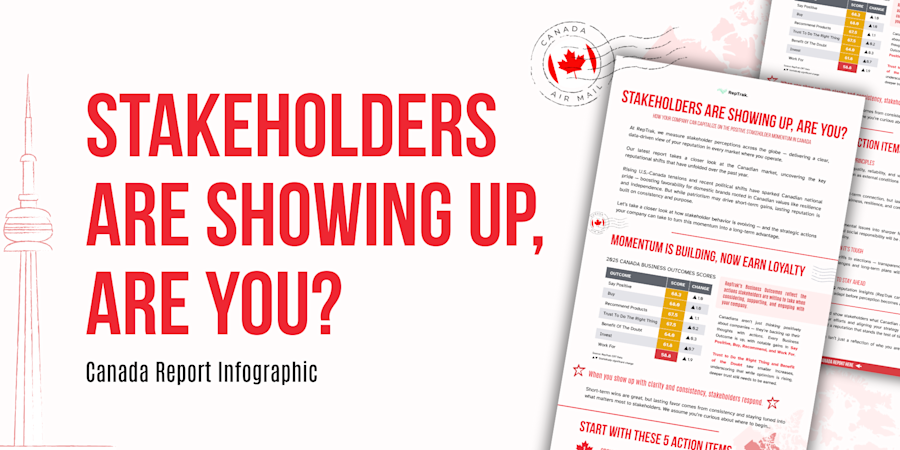The Data Behind Improving Your Reputation With Customers
Corporate Responsibility/ESG07 Jan, 2021
Everyone knows Toyota makes some of the most reliable cars, and people also know they’ll get nickel-and-dimed when they book a flight with a budget airline. Brands reputations’ depend on consumer perception (i.e., what the public thinks about what companies do and say), and that can have a big impact on a company’s bottom line.
At RepTrak, our Data Science team discovered that a higher reputation correlates with important business outcomes, such as “willingness to buy,” “willingness to recommend to others,” “trust to do the right thing,” and giving the “benefit of the doubt” through crises. These business outcomes can indicate whether a company will grow and profit or falter and fail.
These findings may sound obvious, but the insights go much deeper. By deploying machine learning, we can rank which business outcomes are the most important to the public overall and by demographic groups (e.g., Baby Boomers, women, etc.). This can help companies figure out how to best communicate with the public in order to boost their reputations and achieve their goals.
3 Metrics That Influence Your Corporate Reputation
So, what affects business reputation, and how can you improve yours? We measure it by using seven cognitive considerations and three major metrics. To make real progress toward improving your corporate reputation with target audiences, you should focus on these three key metrics:
1. ESG Sentiment
Environmental, social, and corporate governance is taking center stage. According to our research, ESG sentiment is rising in importance. This means that it’s becoming more important to the public as a whole and significantly impacting companies’ business outcomes. Millennials, for example, value ESG three times more than other generations.
Unfortunately, there’s a gap between companies’ ESG sentiments (perception) and their ESG scores (reality). Your company might be making great progress on its ESG initiatives, which affects your ESG score. However, if you’re not talking about what you’re doing, then people will never know, leading to a poor ESG sentiment. The key to improving this metric is communication. If your company is donating a percentage of profits to an environmentally focused charity, for example, then tell the public. Your corporate reputation will improve when the gap is closed.
2. Earned Media Conversions
Earned media (such as news mentions, customer reviews, etc.) continues to offer major opportunities to brands that can successfully navigate the landscape. People see traditional earned media as more credible than owned media because companies don’t have direct control over what’s published. Plus, our research reveals that companies’ corporate reputations improve when people read about decisions and updates through traditional media outlets.
On our platform, we give users information about their earned media status (via a media score) and how the public feels about their third-party content. To make strides in this area, focus on where you communicate in addition to what you communicate. For example, self-publishing information about your charitable giving on your blog will have less of an impact on consumer perception than if you land a press mention in a digital publication.
3. Brand Expressiveness
In a podcast interview, our CEO Kylie Wright-Ford explains that “brand is the promise a company makes and reputation is a reflection of how it acts on that promise.” A poor corporate reputation is merely an indication that consumer perception of your company doesn’t line up with how you want it to be seen. Unfortunately, this is a costly imbalance the directly impacts your business outcomes.
To mend a gap between corporate perception and consumer perception, you need to communicate the right topics at the right times with the right people. For example, if you’re blatantly promoting product discounts across company channels during the pandemic, people might think you’re out of touch. You might think that you’re trying to help out those who are financially struggling, but they don’t see it that way. At RepTrak, we can help you measure all aspects of your communications strategy while comparing your media score results to competitors.
Although it might seem fluffy at first, your corporate reputation can be measured using tangible metrics. Our platform can provide you with a monthly view of your reputation and a weekly view of your media trends, enabling you to handle reputation management in near real time. By capitalizing on this data, you can improve consumer perception and see favorable business outcomes. To learn more about how our platform can help you take control of your company’s corporate reputation, reach out and request a demo today.






